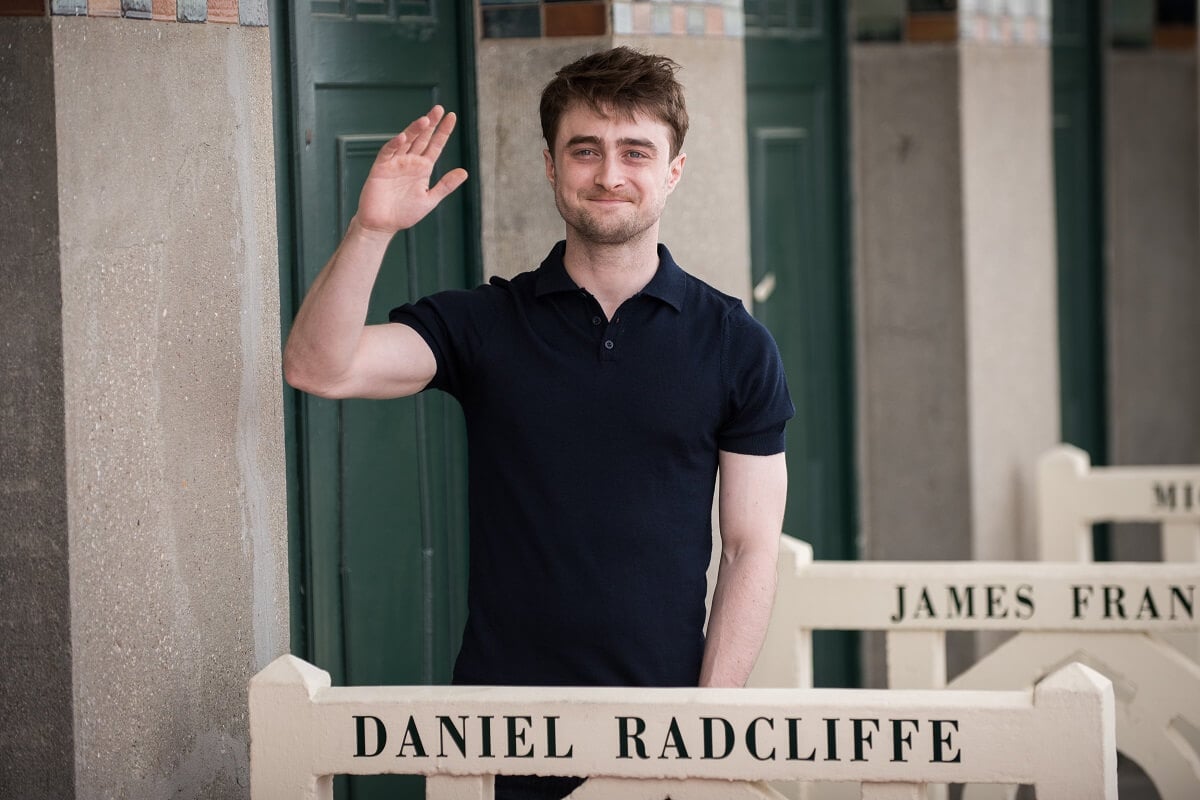
Daniel Radcliffe Felt Watching Old ‘Harry Potter’ Films Was a ‘Destructive Thing to Do’
Daniel Radcliffe began his journey to stardom at a young age when he became a part of the Harry Potter franchise.
But when compared to other actors around his age range, he believed that his abilities might have fallen a bit short.
Daniel Radcliffe on ‘Harry Potter’ being a double-edged sword

Radcliffe has never minced words when it came to judging his own acting ability. The Weird Al star confessed that he found some of his own Harry Potter performances lacking from time to time. But he also felt he was making nice improvements with his acting.
“It’s only recently I’ve become aware of the problems people had with me in the films,” Radcliffe once told Empire (via Female First). “And, you know, people are obviously entitled to their opinions. But we learn from our mistakes. You know, I’m at the age most actors would be when they’ve learned from their mistakes in private and done drama school for three years.”
Some actors Radcliffe’s age may have the luxury of honing their craft in privacy. They take courses and rehearse before they’re ready to make acting their profession. But for Radcliffe, Harry Potter pretty much was their training course. The star and his cast mates didn’t have much formal acting training before becoming the leads of the wizard series. This meant that audiences got to see the actors’ shortcomings and improvements over the course of the series.
“It’s a double-edged sword. I had the amazing privilege of working with these fantastic actors for 10 years and learning from them, but I also had – we all did – the slight curse of somebody seeing, basically, our acting exercises,” he said.
Daniel Radcliffe considered watching old ‘Harry Potter’ films a very destructive thing to do
As a student of acting, Radcliffe sometimes compared his own performances to the acting of his peers. In the earlier stages of his career, he didn’t think he measured up to other actors who also entered the spotlight as children.
“Also, acting is something that I don’t necessarily think comes naturally to me. Certainly not as natural as it does to, say, Haley Joel Osment or Dakota Fanning, who were just giving full-blown adult performances at the age of ten,” Radcliffe once said in an interview with GQ.
He felt that if it wasn’t for his stark resemblance to Rowling’s character, he might not have ended up in Harry Potter at all.
“I think there’s a perception that we got the parts because we looked right. I think that’s probably quite fair,” he said.
Because of his harsh judgment over his acting ability, Radcliffe often found it difficult to re-watch the movies.
“For me to look back on the old films is an almost entirely destructive thing to do,” Radcliffe said in a 2007 interview with Deseret News. “I just torture myself over it. I mean, I was young. I can’t be held accountable for the performance I gave in the first two films: I was 11 and 12. I wasn’t like Dakota Fanning … who could seemingly just do it. It was very much a child’s performance.”
Daniel Radcliffe wouldn’t feel successful unless he became a better actor
Most would consider Radcliffe to be a success by most metrics. The actor managed to snag a starring role in one of the most popular franchises on Earth, ending up with a gargantuan net worth. But Radcliffe didn’t measure his success with money or celebrity. Instead, Radcliffe based his success on his ability to grow as a performer.
“I’ve learned that the only definition of success that can matter is your own. Everyone seems to think that I’ve been completely successful and I can just stop now,” Radcliffe once told George Stroumboulopoulos. “There’s an attitude that success equates to money and if you’ve done that young then you’ve been successful. I actually don’t think that’s how I regard myself because I regard success as becoming a better actor with every job I do. I regard success as a career with longevity. That’s a key part of it.”


